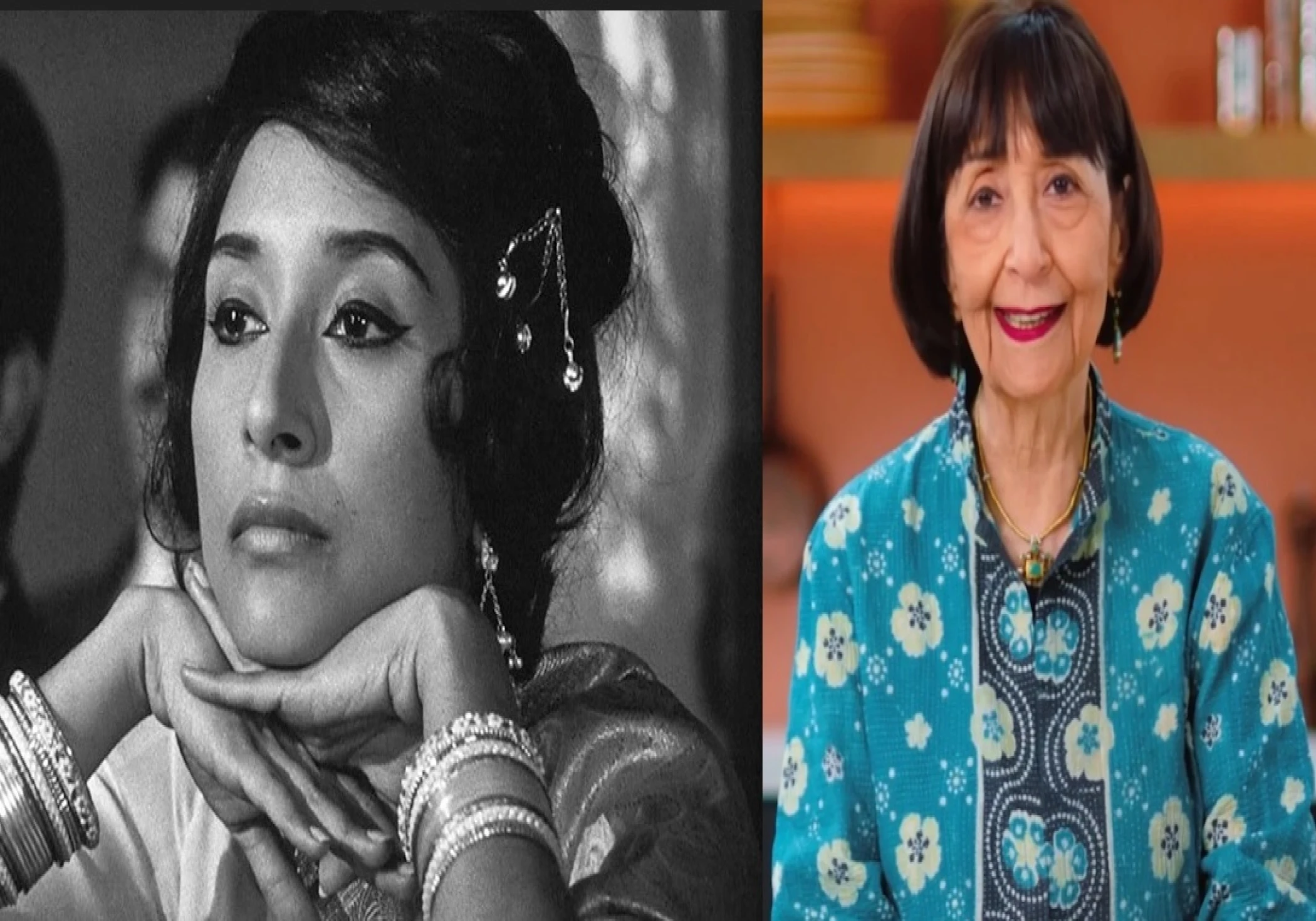
This article is Dedicated to Madhur Jaffrey – actress, gastronome and Uberwoman.
“plus ça change, plus c'est la même chose” Jean Baptiste Karr 1849
जैसा काम करोगे वैसा ही फल मिलेगा
A recent tempest in the Globalists’ Swiss bank accounts arose when an insightful observation by Vivek Ramaswamy concerning the deplorable level to which American higher education has sunk. Superficially, the reaction of the ruling elite and their media stooges reminds us of the basic truth of this celebrated maxim concerning the appearance vs. the reality of change. Not so very much has changed in the five centuries since the rapacious Tudors succeeded in hobbling England by setting up the various dynasties which eventually evolved into that of the Windsor-Rothschilds. Perhaps in matters of fashion to be sure, but little else among the ruling criminal elite has changed. Nevertheless, this same ruling elite, who seek to oppress the very masses, for whom they deafeningly swear they are most assuredly looking out to protect, are the very overseers who brought British and American education to its current level of stagnation and intellectual malaise. Ramaswamy merely observed how the educational systems in the United States have come to venerate mediocrity over excellence. Speedier than an amateur cricketer, the leftist media delivered a counter headline charging his observation as a deliberate attack against the woebegone nation. One of the most duplicitous editors ever to crawl out of CNN headlined it with: Ramaswamy Hammered by Right over Screed Declaring Americans Mediocre!
Gershwin’s old bromide, “How long has this been going on” should come to mind. And rather than trace the decline among educators as far back as William James and John Dewey, we can at least point to the seemingly deliberate obfuscation by Shakespeare critics as a starting point sometime around the mid-20th century. For how better to destroy the education system than by making the culture’s greatest poet seem all but unintelligible to all but the chosen few literary poohbahs nestled in their unassailable ivory towers? Simply put, how long did it take academics to present interpretations of everyman’s poet for contemporary audiences in ways that would see to it that everyman is kept out? And always at the expense of the essential literary details that made Shakespeare Shakespearean! It’s almost too delicious and Indophile to imagine that Shakespeare was a similar thorn in the side of the illegitimate Elizabeth I as Ramaswamy is to the Rothschild empowered descendants of Elizabeth II.
Instead, let us consider just how radically Shakespeare assailed the very claims of the House of Tudor built upon the sands of murder, usurpation and self-engendered political chaos. Nowhere do we find his distaste for their regime of crime and mayhem than in the history plays. However, romantic comedies and late romances are tinged with shades of accusatory elements whether in the shape of evil rulers or unjust societies. The mature playwright of the greatest of the late romances, THE TEMPEST, helps us to glimpse the bard’s appreciation of his supernatural gift for creating worlds out of words. No mean observation for a staunch closet Catholic of Shakespeare’s depth who needed only recall the first line of the Gospel of St. John, “In the beginning was the word, and the Word was with God,” to justify his own self-righteous view of the poet’s place in the ladder of ascent and perfection. His poetic gifts were advanced, admittedly, first to secure the position and wealth of his family.
The poet’s families, both Shakespeares and Ardens, respectively, had suffered twice pilfered legacies owing to the greed of Henry VIII’s ever growing newly minted “nobility” snatched from the jaws of England’s more successful highwaymen–the Bullens, the Cromwells and the Cecils, to name but a few. Yet, on a sublime level, it would be hard to ignore how the poet ceased indulging his self-consciousness as having possessed a divine gift for glorifying the works of the Creator through his plays or “as holding a mirror up to Nature.” Thus, I would hazard to compare the Shakespeare canon, though only in its evolution, to that of the central sacred Hindu texts. The plays seem to mimic the development of those texts from the historical epics of the Mahabharata right up until the meditations on the Vedas, the Upanishads.
If one were to isolate the central biographical detail in Shakespeare’s family history, as well as cause of his life long aversion for the Tudor dynasty, it would occur in the family fable told and retold, long before his birth. The poet’s father’s aunt, Isabella Shakspeere (sic), was the abbess of one of Stratford’s most renowned Benedictine cloisters, closed by Henry VIII somewhere toward the end of his rapacious dissolution of the monasteries around 1541. The matriarchal nun spent the remainder of her life in the household of her father, the poet’s paternal grandfather. In point of intuitive and analogous fact, such family tradition might be considered for Shakespeare as powerful as Proust’s habitual encounter in the drawing room of his invalid aunt Leonie, where the child’s casual habit of dipping a madeleine dans une tisane de the’ au citron would one day become the defining moment for the seven-volume novel he would someday go on to write.
To be sure, the Shakespeare family’s obstinate rejection of the Tudor heresy cannot only be traced to their wounded sense of deprivation but later assured the fact that the poet himself would curse anyone who dared to move his remains from the burial vault at St. John’s parish church in Stratford where the curate was himself a stalwart believer in the old faith. To this moment of family history, one must add Shakespeare’s lifelong regret for having allowed Anne Hathaway, an older woman, to seduce him and thus resort to her father’s forcing him to marry her shortly before the birth of his most beloved eldest daughter, Susannah. Lastly, the adolescent Shakespeare’s lifelong detestation for appointed authority was deep rooted in his arrest at the hand’s of the constable for a local nobleman who caught him poaching. Interestingly enough, the heroine of the only plot which the poet invented rather than adapted as with all his other works, MEASURE FOR MEASURE, has as its heroine, Isabella, a nun who is tempted to leave her convent by the demonic villain of the play, Angelo, who will spare her brother’s life only if she will sacrifice her virginity to his psychotic lust. As for those plays in which women tempt men to their downfall, one can trace all but KING LEAR and CORIOLANUS among the tragedies though all among the romantic comedies have two-faced or manipulative heroines, best epitomized by Cleopatra herself. As for Shakespeare’s detestation of the police officials, Dogberry in MUCH ADO ABOUT NOTHING, is one of his greatest comic foils redeemed only by the fact of his superior logic, no matter how labyrinthine its revelatory process when compared to that of his social betters, who, for all their clear speaking, remain perplexed in the face of female nobility and betrayal.
The quintessential biblical text to which we can safely ascribe Shakespeare’s identifying hsi poetic voice with that of the divine voice itself would have to be his readings in the Old Testament text, King Solomon’s Song of Songs. There the poet first discovered scriptural sanctification of words of love that were more delightful than the joys of wine itself. So the analogous biblical text for the sacred Hindu themes and symbols of the BHAGAVAD GITA and the KAMA SUTRA combined would make for treasury of ideas that fueled the early romantic comedies riddled with foolish mistaken identities and epiphanies of noble birth where one would least expect to find them. This religious tone permeates the mature comedies AS YOU LIKE IT, LOVE’S LABOURS LOST and TWELFTH NIGHT. There, love and death are tied to the hero and heroine’s amatory salvation. And in each of the three, the climactic resolution of the true lovers’ problems is always developed at the expense of puritanical hypocrites.* Is it any wonder then that all the literary critics since Ernest Jones could not have made the most sublime Shakespearian comedy any more effective than the Merchant Ivory production of SHAKESPEARE WALLAH? What Olivier hoped to achieve with his oft castigated and, unfortunately, abbreviated, film version of HAMLET, Merchant-Ivory managed to translate in minutes on the screen merely by expanding upon the characters’ depth in a love triangle set against the backdrop of Shakespearean mayhem and misadventure. As the hero and his older mistress go on to embody two sides of Malvolio’s self-delusion, the younger heroine can only survive by avoiding the shoals of temptations presented by each–romantic infatuation with the male and any dramatic vengeance against the female–if she is to escape their venom.
*Cf. The first moment of Sanju’s bewitching occurs during a performance of TWELFTH NIGHT in the film. From that moment, Sanju rushes home to tell his soon to be frustrated mistress, Manjula, how he is bewitched after learning that “Some are born great; some achieve greatness; and some have greatness thrust upon ‘em!.” It's almost as though the Bard had an Indian rajah in mind. This in turn leads to the mistress’ determination to come between her precious nawab and this common dirty English girl. In Madhur Jaffey’s capable hands alone can we feel the divine weight upon her shoulders while she struggles to save her innocent boy from this diabolical English girl only to appear more sympathetic and ridiculous simultaneously.
The early histories can be regarded as the playwright’s Ramayana, whereby stock villains and heroes of the epic periods that led up to the social chaos ushering in the illegitimate Tudors. KING JOHN is a blow by blow account of the political gamesmanship that followed upon the death of the titular character’s elder brother, Richard the Lionhearted, after he was succeeded not by a legitimate heir but his bungling fool of a brother. John could only be hemmed in by rebellious barons who forced him to sign the Magna Carta. The unfit ruler’s kingdom, however, is saved in the end through the self-sacrifice and loyalty of the only hero in the play, Falconbridge. When Shakespeare went on to develop the trilogy based predominantly upon the Chronicles of the period, HENRY VI, Parts 1-3, can be summed up, however inadequately, as illustrating the even greater perils of placing an heir upon the throne of an unruly kingdom even though his piety and observance of justice are incapable of triumph.
The tripartite play demonstrates how the hero’s innate weakness of character leads to the destruction of his dynasty. Yet these early histories served as the Bard’s drawing board for the four masterpieces he later wrote to frame the unhappy demise of the House of Lancaster and the destruction of the House of York.
It is only when we come to these later histories that we can see how Shakespeare’s development on the stage as comparable in a classical context of vying with of Homer and Virgil in the epic forms. Thus, we can view these history plays almost analogously with the structure of THE MAHABHARATA. Furthermore, both the Hindu epic and the Elizabethan cycle culminate with an age of chaos—the age of Kali—which for all intents and purposes describes the false time of tranquility ushered in by the Tudors.
No wonder then that the crown’s reaction to the first play called into question the author’s loyalty in an even more unique way than his production of JULIUS CAESAR; for those who still insist that it’s merely a matter of interpretation rather than intention; in the former an English king is deposed and murdered, while in the latter a Roman “tyrant” is assassinated. When RICHARD II was produced in London, Shakespeare was under threat of preaching open sedition against a feeble monarch; Elizabeth came to embody weakness after her dishonest victory over the Spanish Armada led to none of the promised benefits of national and economic security. One can almost trace the cunning use of Lord Cecil’s secret police as progressing against the backdrop of this social unrest. Even the murder of Shakespeare’s greatest theatrical model and counterpart against the backdrop of a tavern brawl, Christopher Marlowe, may appear to have been a veiled message to the author by Cecil regarding the author’s taking care to mind his words.
Thus, Shakespeare’s sequel to the controversial drama about deposing a monarch led to Henry IV, Parts 1 and 2. There another conniving nobleman, the deposed king’s cousin, the Duke of Norfolk, pays for his rise to power with the realization that “uneasy lies the head the wears the crown.” Throughout the two parts, King Henry IV is troubled by the prospect that he will be succeeded by a son, Prince Hal, who is living under the immoral influence of Sir John Falstaff. Based upon the historical figure of a famous Protestant saint, Shakespeare’s greatest comic invention aroused the ire of the original Falstaff’s heirs. He is shown most satirically in these two plays as a liar and a coward. When father and son are faced by rebellion and outright invasion from their northern earls bolstered by the Welsh, original people from whom the Tudors sprang; and despite Falstaff’s influence, the prince proves capable and mature enough on the battlefield to allow his father to die, if not in peace, at least in the belief that his stolen kingdom might just survive. Yet it is the image of Falstaff dragging the corpse of Harry Percy, the king’s chief rival, while proclaiming that “honor is a mere escutcheon,” who audiences remember most. And even when Hal ascends to the throne and dismisses his old mentor with the scurrilous invective so as to discourage any hope of connection to the newly crowned monarch, it is Falstaff who comes out ahead in the eyes of the audience. “Fall to thy prayers, old man! I know thee not. How ill gray hairs become a fool and jester! Here dialogue and characterization leading to diametrically opposed reactions in the mind of the viewer is what sets the author apart as one of true genius. So much for glorifying and ridiculing the very people who the playwright despised. Yet the final movement in this tetralogy, HENRY V, could only serve to thwart the monarchy’s suspicions about the author’s loyalty. The only thing the audience who knew their history might come away with after the early performances of this jingoistic epic drama may have been their questioning how the hero of the Battle of Agincourt could have later sired an heir at once so noble and so weak in the doomed Henry VI who would someday lose his throne to a demonic villain.
When Shakespeare chose to develop the history of King Richard III from Holinshed’s Chronicles, he was painfully aware of his need to steer between the Scylla of the deposed king’s identity as the last legitimate ruler of England and the Charybdis of Elizabeth’s censors who demanded his strict adaptation of Thomas More’s obsequious version of the story. Moore wrote the account to please Henry VIII, whose father, Henry VII, deposed the king martyred at Shrewsbury in 1485. No mean feat to protect his head and his literary reputation, yet the author managed to create his first legitimate adaptation of Marlowe’s greatest contribution to English dramaturgy, the Marlovian anti-hero. Marlowe created sympathetic monsters for THE JEW OF MALTA and TAMBERLAINE. In the mold of those two larger than life villain-heroes, RICHARD III, presents the audience with the conundrum of a practical king who knew his saintly, yet sickly, brother was to be succeeded by a young prince regent just at a time when the nation had thought it had resolved the War of the Roses.
To complicate matters further, Richard knew his nephews were illegitimate. Yet in More’s telling of the story, it is Richard who has his nephews murdered in the Tower of London. Historical documents, however, show that the boys were alive at the time of Richard’s defeat, and, in point of fact, Henry VII had the boys murdered to prevent his brothers-in-law from ever claiming their right to ascend his pilfered throne. Shakespeare walked the tightrope between the historical records and More’s fictional homage to his patron’s usurping father under such pressure that he managed to unleash his own adaptation of the antihero. This stage in his development also proved crucial for the later anti-heroes, Macbeth, King Lear, and Othello. As Shakespeare knew all too well, history is the falsehoods published by the victors’ publicists. The classical models of Herodotus, Thucydides and Plutarch be damned. Once the Tudors managed to seize the throne and, more importantly, the executioner’s axe, their subjects learned all too well which history to believe if they wanted to keep their practical heads between their courtly shoulders.
So you might ask why is it that such topics are still off limits among the “critics” who now manage how audiences and scholars alike come to examine the accepted canon. To be sure, while none of the interpretations put forward here are my own, they were all garnered and culled from those leading critics who wrote and published before the universities were highjacked by the Rothschilds’ agents in Britain and America, namely MI5 and the CIA, respectively. And if any of you has the time to peruse the reliable critical sources for yourselves, you need only research the essential biographers, Thomas Marc Parrott and Harold Shoenbaum; and then move on to the greatest of the early 20th century Shakespeare scholars, Harold C. Goddard’s The Meaning of Shakespeare, Vols.I & II; next peruse Olivier’s favorite scholarly source, Harley-Granville Barker’s Prefaces to HAMLET. From these you should consider A.C. Bradley’s Shakespeare’s Tragedies, G. Wilson Knight’s two volumes on the plays, Mark Van Doren’s Essays on Shakespeare, and finally, Derek Traversi’s two volumes of incomparable essays. For these readers and their honest body of work were and remain the decisive body of Shakespeare criticism before the collapse of the university systems.
Sometime around the mid-20th century, all historical appreciation of the author and his time descended into “timely” discussions of sexuality, matriarchy, pronunciation, and finally, how Shakespeare didn’t really write the plays after all! In that last category, it is most revelatory to learn that among Shakespeare’s most treacherous detractors, we find not only the future luminaries of mediocre English departments on both sides of the Atlantic, but none other than “HRH” Phillip Mountbatten and Sir Charles Chaplin. Indeed, where else to turn for the truth about the Bard other than one of Hitler’s most chameleon-like admirers and the world’s funniest Stalinist and Marxist billionaire. If only the royals had read more Proust and less de Brett. There they might have learned that Shakespeare above all fit Proust’s definition of genius, namely, intuition. Last time I checked my source on behavioral psychology, I realized that intuition cannot be learned. Yet in the hands of a great artist, it will ever be illustrated.
Of course, the late prince consort could not possibly conceive of ingeniousness somehow existing in the mind and sensibility of one who had to struggle to survive almost from the moment he entered a 15th century local grammar school. After all, HRH knew everyone who mattered and was descended from all the leading families compiled in the Almanach de Gotha. Surely, only one of their ranks and breeding could have possibly written plays and chosen to foist them off under the name of some Stratford nobody who knew only how to manage a dramatic company and nothing about what it really took to be a prince. Unlike Phillip, however, Shakespeare along with most of his generation living under the Tudor Tyranny knew these facts all too well and they learned them straight from the pages of Machiavelli’s THE PRINCE and Castiglione’s IL CORTEGIANNO.
Before I too am hoist on my own petard, let us recall that for all her reactionary distaste in the Merchant-Ivory film, Jaffrey’s characterization of the Bollywood bimbo as diva does more to proclaim the greatness of the real Shakespeare even among the humblest of acting companies. When we recoil from her self-serving criticism of the players only to salvage her unhappy romance, we recoil from our own refusal to see the real Shakespeare for his earthy, lusty, violent and deliberately ambiguous approach to the problem of dramatic characterization. Let it suffice to say that however unachievable the original pronunciation--and the original must have sounded more like American English than the Oxbridge snob inflections later adapted to preserve class distinctions since colonials always preserve the pronunciation first heard; whatever the Bard’s sexual proclivities, he was a man of his time who sought sexual favors wherever they were offered; and it becomes even more reasonable to assume that by the time he had achieved greatness on the London stage rather than having had it thrust upon him, Shakespeare’s unhappy marriage to an older woman was all but dissolved. After the untimely death of his only son, his view of marriage, women and childhood was radically transformed into a pessimistic stoicism that only Euripides and Sophocles might fathom. Yet his obsession with racy sexual puns remained unflappable; his detestation for authority unmerited stood unmoved; his recognition of his gifts as being God, as opposed to petty king, given helped him achieve the Olympian distance that assured the success of the late romances despite the most distasteful and downright perverted level of the themes treated there. A good Freudian would regard those works alone as having been penned by a homicidal misogynist whose obsession with incest was downright unhealthy. However, anyone who goes to the theater to put the playwright on the couch would be better served to remain at home watching Telly from his own coach instead.
No, the Elizabethan drama was composed for distraction, entertainment and, at best, elucidation of the general audience and not some inconceivable cadre of university professors. Shakespeare himself reminds us of his disgust that most of his offerings are to be offered as “caviar to the general.” The histrionic level of the actual performances was dictated by the fact that the greatest of heroines were always written for and interpreted by young boys in drag. Almost as effective as Manjula’s distaste for such dirty plays, therefore, is Barrymore’s interpretation of Mercutio in ROMEO & JULIET. He makes the unhappy swordsman’s final speech hysterically funny because he knew in his dramatic bones that the love at first sight plot was hemmed in by humorous and fustian overreach. It is Shakespeare’s heavenly inspired verse that helps us to conceive of roses, or our family enemies, as being just as sweet smelling had they only been fortunate enough to be born under another name. Yet the director of what is probably the greatest of film productions for the doomed Veronese lovers never dropped the satiric ball and allowed Edna May Oliver’s befuddled and meddlesome nurse to appear ridiculous while achieving comic sublimity at one and the same time.
By the time Shakespeare was ready for the problem play of HAMLET, he had already learned the art of juggling the humorous with the lethal. This play alone has engendered enough printing pages that might have been better left to mature in a virgin forest. Try wading through the arguments of established critics who never cease to wonder why Hamlet just does not kill Claudius as soon as he hears what the ghost reveals to him. Somehow these austere thinkers always manage to overlook the fact that the playwright was determined to examine every angle and coign of vantage in the mind of this self-absorbed hero to fill the necessary space that would consume the necessary scenes for the movements of a tragedy whose plot was predetermined by his Danish sources.
Yet the usual gaggle of critics refuse to discuss how Shakespeare took the silliest of Senecan tragic forms, in which a ghost appears to demand that his unfortunate kinsman seek revenge against his murderer and turned it into what is perhaps the greatest tragedy ever written. Never too shy to shy away from the game of one upmanship, Shakespeare stole liberally from Thomas Kyd’s THE SPANISH TRAGEDY to perfect his take on the revenging kinsman who poses as a madman to disarm his suspect. However, one would be even more hard pressed to find a critical discussion of the role that fate, in the most classically Greek application of the convention might play comes into play in HAMLET by the fact that Hamlet was born on the very day his father murdered the King of Norway. After King Hamlet leaves his victim’s son, Fortinbras, to be checkmated by a nefarious uncle as regent, the childe is only spurred to wreak vengeance against the entire kingdom that deprived him of his royal sire in the first place. Somehow, even Olivier in his production of the film failed to understand that Fortinbras’ exacting revenge against the Danes dictated the destruction of that house even to its most guiltless member; and by ignoring the demands of ancient Greek moira and nemesis, he fractures the tragic backdrop against which the play within the play within the play must play itself out. Finally, however, we come to the most recent respectable critics’ refusal to admit the depth to which Shakespeare perceived the nature of madness.
For it is out of the mouth of a beguiled fool before his untimely death whereby the poet manages to utter the comic tenor to a most tragic vehicle. Instead, we get voluminous volume after volume about whether Hamlet is mad or just pretending to be so. Albeit the play presents an actual case study of a child’s descent into madness owing to whatever guilt plagued her at the time of her father’s murder by her presumed lover. Ophelia becomes madness personified and her suicide should be seen as a foreshadowing of the hero’s final motivation. Yet even when we see Hamlet descend into total, however temporary, insanity in his mother’s closet. There, when the ghost appears only to him this time “to chide him from his daunted purpose,” it is Gertrude’s insistence that she sees all that is there which and she sees not the very coin of his imagination. Unlike the first appearance to the night watch atop Elsinore Castle where all in attendance heard the ghost, this moment underscores the reality of Hamlet’s delusion. After Shakespeare went to such lengths to distinguish the earlier from the later apparition, how some would still ponder whether Hamlet is posing or is mad defies all but augury. Again, I offer these observations to pose the question as to why contemporary critics still refuse to separate the wheat from the chaff simply by carefully noting what is in the play itself.
If any analogy between the mature comedies and the KAMA SUTRA is to be observed, it stands only on the fact that the plots of each are always contingent upon the metaphysical dimensions as applied to earthly love. In Cleopatra’s final words as she prepares to meet her dead lover: “I have immortal longings.” While such metaphors work perfectly in the Hindu context, for western audiences watching the plays in the era of their initial production, it was only after the 16th century in England that poetry began to take on the conventional trappings of metaphysical poetry. In one of the comedies, A MIDSUMMER NIGHT’S DREAM, both gods and humans compete at every social scale right down to the rude mechanicals to make amorous asses of themselves in public. In Shakespeare’s greatest comedy, TWELFTH NIGHT, the very essence of love as both divinely inspired and thwarted rests upon that which defines sexual identity. The playwright exploits in this comedy above all the convention of the boy disguised as a girl disguised as a boy in a series of mistaken identities that goes beyond any of the silliness of slapstick in the early comedies. In short, the male victim, Orsino, has immortal longings with no intention of dying. It is only after the object of his desire, Sebastian, is revealed to be Viola can he assert his manly attraction to the object of his desire after all. To a Hindu and Hejira appreciating audience who would have understood Shakespeare’s intuitive Vedic observation all along, Puck’s mockery in A MIDSUMMER NIGHT’S DREAM, becomes applicable to all who choose to descend into the heavenly hell of carnal love:
“What fools these mortals be!”
No wonder then that the playwright chose to focus on the extremity of foolish pranks to which humans will subject themselves by pretending to be rather than worshipping the gods. To be sure, it is in PERICLES, PRINCE of TYRE that the principles come closest to presuming themselves divine where a father and daughter’s relationship borders on the incestuous; legend has it that it was coauthored by the Bard’s good friend, Wilkins, an innkeeper and pimp! However, Prospero’s meddling in the affairs of Marina in THE TEMPEST is encased in the lengthiest procession of witty observations on how we presume to see ourselves as gods. It is only in her final speech of recognition that Marina is able to digest the wonders that her father has managed to create for her and her future husband, Antonio; only then can we fully appreciate this play as the poet’s most advanced creation as Vedantic philosophy where nothing is what it appears to be and nothing is never simply that which is not and no truth can exist apart from its contradiction. The only problem for us mortals is that only the playwright seems to understand how only the gods can comprehend such truths while we are left merely to ponder the myriad ways in which their creation, our limited universe, expresses rather than explains them.
“O brave new world, that has such people in ‘t!”
Again, the poet’s echoing of the basic principle of the Upanishads: "Good and evil may be everywhere; yet life-principle or atman is inherently good.”
It is once again that we must fall back on our appreciation of Shakespeare’s intuitive genius to recognize how he transcended space and time to arrive at the very teachings whose utterances may have preceded him by almost four thousand years. So long as the world continues to be populated by poets like Shakespeare and artists like Madhur Jaffrey, there may yet be hope for our cultural survival after all.












